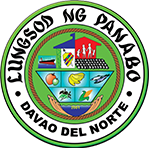
.png)
Knowing these rules and putting them into practice will help you
recycle more effeciently and ensure more materials find a second life



Reality: The acceptance of glass in recycling programs varies by jurisdiction. Glass recycling collection varies in communities across the U.S. Some communities recycle glass with all other recyclables; some collect glass separately at the curb in its own container, and some cities have specific recy- cling drop-off locations for glass. Some states, like CA, CT, OR, IA, MI, ME, VT, MA and NY, have 'bottle bill' laws that allow for a per-bottle deposit when bottles are brought to return centers or retailers for recycling. Please refer to your community's recycling guidelines for local program information.
Reality: Containers should be clean, but don't have to be spotless. While all bottles, cans and containers should be clean, dry and free of most food waste before you place them in your recycling container, they don't need to be spotless. The goal is to make sure they are clean enough to avoid contaminating other materials, like paper, or your un-lined kitchen recycling bin. Try using a spatula to scrape cans and jars, and putting recyclables in your sink among the dishes you are rinsing to share that same water to rinse and remove residue.



A Geographical Waste Analysis in Panabo City is a web-based platform designed to address solid waste management challenges using advanced technology. The system integrates GIS mapping to generate heat maps of waste accumulation and applies forecasting techniques to predict future waste metrics. It offers data visualization tools to analyze waste disposal and includes a calendar of environmental activities from CENRO Panabo.
.png) (084) 216-7653
(084) 216-7653
.png) cenropanabocity@gmail.com
cenropanabocity@gmail.com
.png) Panabo City
Panabo City